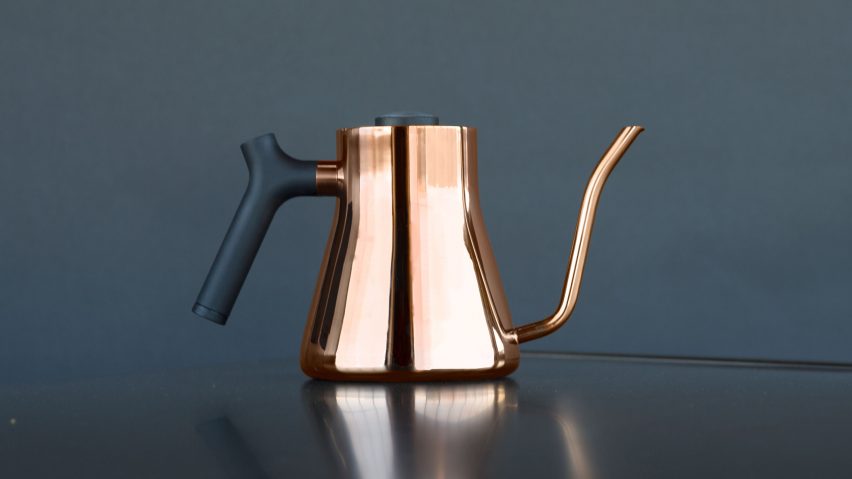
Fellow designs app-controlled kettle for precise coffee brewing
San Francisco startup Fellow has designed a connected kettle that lets users precisely and remotely control its temperature for optimum coffee brewing.
The Stagg EKG kettle, which was designed by Fellow in collaboration with branding agency Branch, is intended as a more aesthetically appealing and minimal alternative to existing electric kettles.
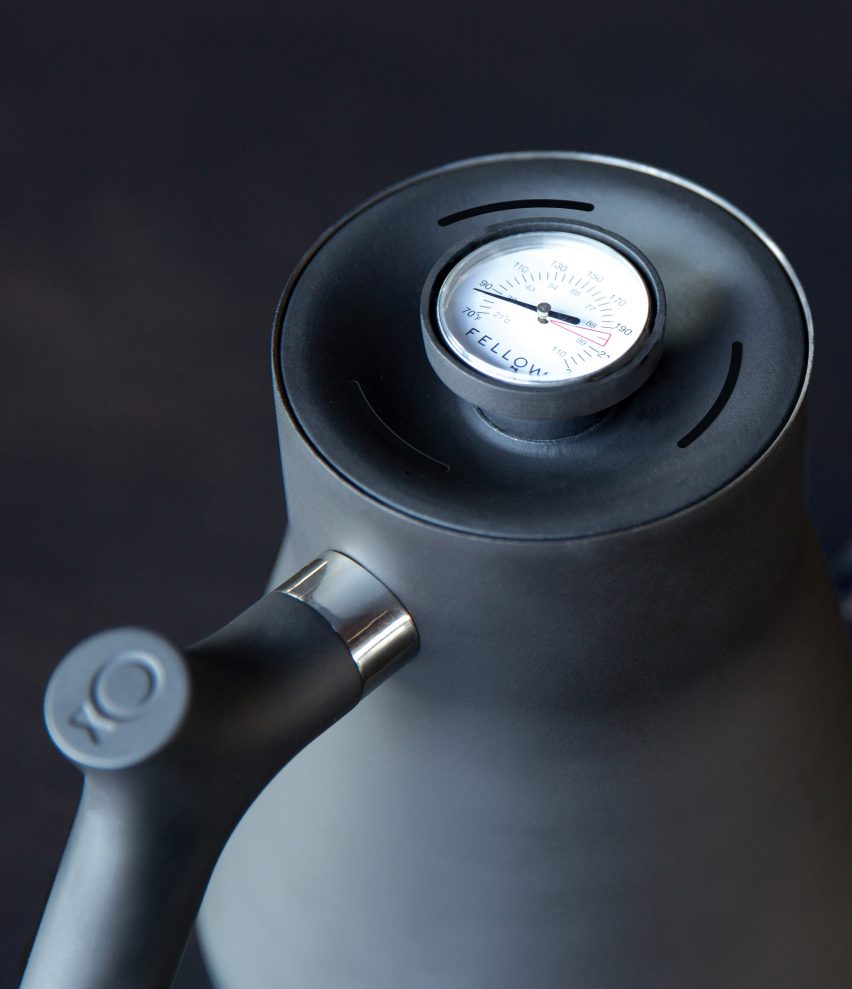
It connects to an app named Brewbar, allowing users to remotely control the temperature, and to switch the device on and off.
The app also stores brewing times and temperatures, so users can save recipes for future reference.
"We love pour-over coffee, but we didn't love the electric pour-over kettles currently on the market," said Fellow. "We spent months crafting and perfecting a minimalist electric pour-over kettle you'll be proud to display on your counter."
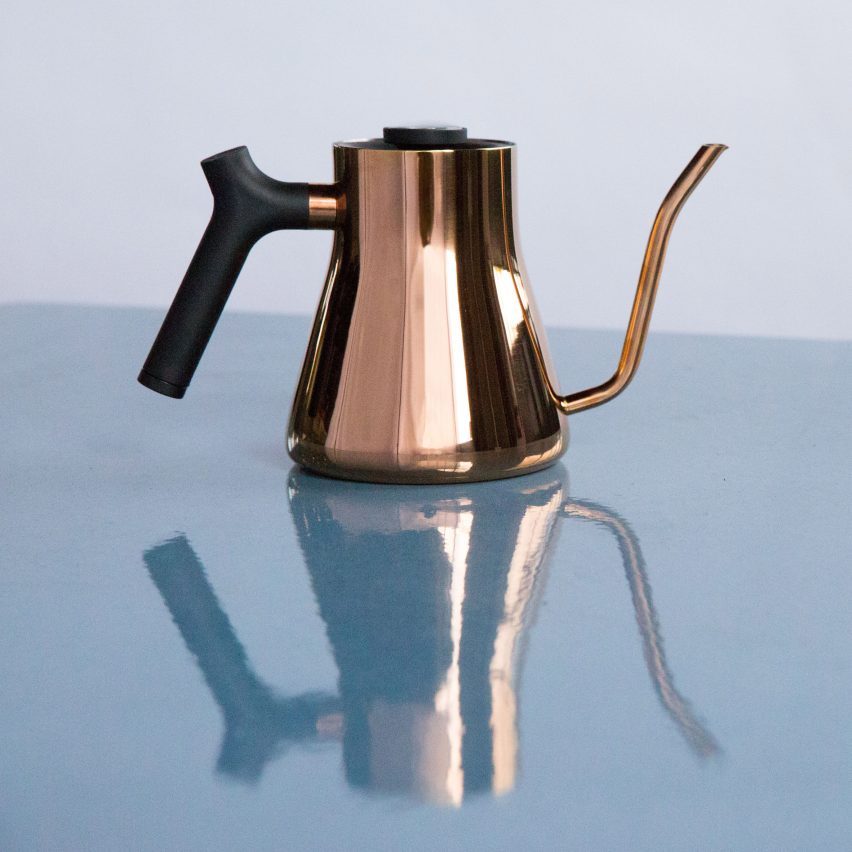
The kettle's minimal design features a slender spout and handle. A weight in the handle moves the centre of mass closer to the user's hand for a controlled pour, while the slender spout allows for a more precise stream of water.
Its on-off button pops out to double as a dial that controls the water temperature, which is displayed on an LCD screen on the kettle's base. The Stagg EKG can be set to maintain a specific temperature for up to 30 minutes, meaning users to set it to be ready for when they arrive home.
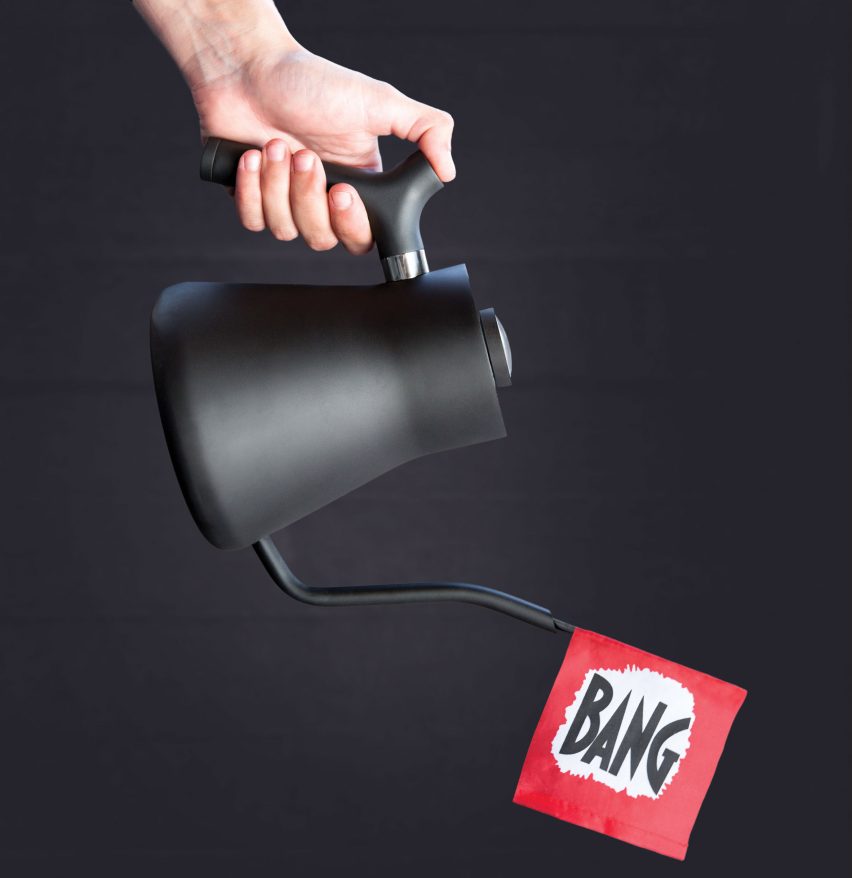
Fellow funded its first product – a coffee steeper – on Kickstarter in 2013, with over 2,000 backers raising enough funds to launch it. At the time of writing, Fellow had already exceeded its initial goal of $100,000 for the Stagg EKG, reaching $280,000 from 1,919 backers.
Designers and technology companies have been competing over recent months to provide the first and best smart home products.
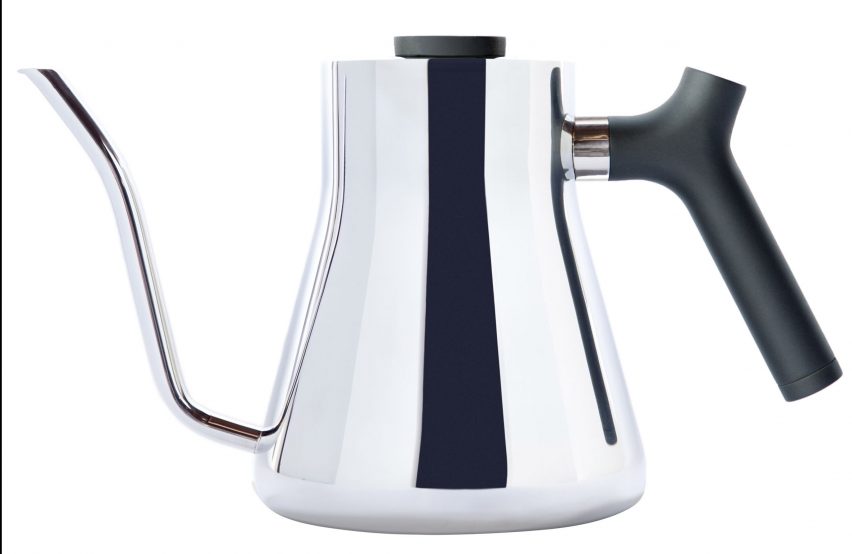
Examples include Philippe Starck's smart radiator valves, which allow homeowners to remotely control the temperature of each room using their voice, and Yves Behar's home security system that allows users to let visitors into their home when they are not there.
Last year, Google launched its own omniscient voice-controlled Home device, which – similar to the Echo and Smart Assistant – acts as a central command centre for homes connected to many digital gadgets and systems.